Meet the masters: 5 legendary classical Urdu poets you must know
.png&w=1920&q=75)
Classical poetry holds a landmark position in the history of Urdu literature. This era of poetry is not only a reflection of linguistic beauty and artistic expression, but it also captures the depth of life, emotions, philosophy, and social consciousness. The classical poets of Urdu, with their unique styles and intellectual depth, left a profound impact on their own times while also creating a luminous literary legacy for future generations.
In this blog, we will look at five renowned and widely celebrated classical poets of Urdu, their poetic style, and their unique qualities of their works.
Wali Dakkani (1667–1707)
Often regarded as the “Father of the Urdu Ghazal”, Wali Dakkani gave the ghazal a new dimension, freeing it from the overwhelming influence of Persian and shaping it into an independent form with its own identity. His poetry reflects both worldly love (ishq-e-majazi) and spiritual love (ishq-e-haqiqi). Alongside celebrating the physical beauty of the beloved, Wali also explored its spiritual aspects. His verses frequently engage with themes of Sufism, while aesthetic beauty remains a hallmark of his work.
Wali’s style is marked by simplicity, natural expression, and sweetness of language, which made his poetry immensely popular among the people. He skillfully blended Persian with local and Hindi words, adding richness and linguistic variety to his verses.
- Suggested Course
Introduction to Urdu Language, Literature and Culture
- Suggested Course
Understanding Urdu Poetry: Key Concepts and Analysis
This style of expression represents one of the most enchanting aspects of the Urdu literary tradition, where worldly and spiritual love merge into a graceful fusion. Within it, the beauty of physical form is portrayed with delicacy and precision, a technique often referred to as sarapa nigari (the art of describing the human form). Such writing reflects not only an aesthetic sensibility but also the creative power of language itself. The poet maintains a fine balance in diction, blending the refinement of Persian with the simplicity of local vocabulary. This fusion lends Urdu poetry a distinct charm: on the one hand, it embodies a rich cultural rootedness, and on the other, it radiates the grandeur of classical elegance.
Here are a few couplets by Wali Dakkani:
muflisi sab bahaar khoti hai
mard ka etbaar khoti hai
tujh lab ki sifat laal-e-badakhshan sun kahunga
jadu hain tere nain ghazalan sun kahunga
jise ishq ka tir kari lage
use zindagi kyun na bhaari lage
dekhna har subh tujh rukhsar ka
hai mutala matla-e-anwar ka
kiya mujh ishq ne zalim kuun aab ahista ahista
ki atish gul kuun karti hai gulab ahista ahista
Mir Taqi Mir (1723-1810)
In Urdu poetry, Mir is regarded as “Khuda-e-Sukhan” (God of Poetry). His real name was Mir Muhammad Taqi. Mir’s poetry reflects grief, loneliness, love, and the depth of human emotions. His verses are filled with an intensity that pierces the heart, carrying the raw truth of pain and passion that shakes the reader. For Mir, the sorrow of love was not merely a theme but a continuous state of thought and being. His language is simple and fluid, yet within this simplicity lies a depth and impact rarely found in works of others.
Mir Taqi Mir’s poetry is marked by a simple yet impactful style of expression that touches the heart instantly. His verses often trace the journey from worldly love to divine love, reflecting the depth of human emotions and the longing for higher spiritual truth. In his poetry, personal anguish transforms into a universal experience, where inner pain becomes a path to self-realization and spiritual awakening. Through this blend of emotional intensity and mystical reflection, Mir emerges as a poet who not only portrays love in its many shades but also captures the profound spiritual struggles of the human soul.
Take a look at these couplets by Mir:
hum ko shayar na kaho Mir ki sahab hum ne
dard-o-ghum kitne kiye jama to deevan kiya
patta patta boota boota haal humara jaane hai
jaane na jaane gul hi na jaane baagh to saara jaane hai
nazuki us ke lab ki kya kahiye
pankhudi ek gulab ki si hai
rah-e-dur-e-ishq mein rota hai kya
aage aage dekhiye hota hai kya
ab to jate hain but-kade se 'mir'
phir milenge agar khuda laya

Khwaja Mir Dard (1721–1785)
Khwaja Mir Dard is renowned as a Sufi poet of Urdu. His poetry reflects wahdat-ul-wujood (unity of existence), divine love, spirituality, and the inner states of the human soul. Dard’s verses are not only moving but also offer readers a profound spiritual experience.
The hallmark of his poetry is its deep connection with Sufism. His couplets beautifully portray the fleeting nature of the world, the struggle of the self, and the stages of true, divine love.
Khwaja Mir Dard’s poetry embodies a unique blend of mystical and spiritual themes that set him apart in the classical Urdu tradition. His verses flow with a remarkable softness and simplicity, yet beneath this delicate surface lies profound depth and intensity. Dard’s style avoids ornamentation and heavy embellishment, choosing instead a directness that makes his words universally relatable. Central to his thought is a deep reflection on the impermanence of life,the fleeting nature of worldly attachments and the certainty of death. Through this awareness, he guides the reader toward a higher spiritual consciousness, urging detachment from transient pleasures and closeness to the Divine. In this way, Dard not only articulates the essence of Sufi philosophy but also creates a poetic space where inner longing and spiritual truth find their most powerful expression.
Here are some couplets by Khwaja Mir Dard:
dard-e-dil ke waste paida kiya insan ko
warna taat ke liye kuchh kam na the karr-o-bayaan
arz-o-sama kahan teri wusat ko pa sake
mera hi dil hai wo ki jahan tu sama sake
sair kar duniya ki ġhafil zindagana phir kahan
zindagi gar kuchh rahi to ye javani phir kahan
tar-damani pe shaikh hamari na jaiyo
daman nichod den to farishte wuzu karen
jag mein aa kar idhar udhar dekha
tu hi aaya nazar jidhar dekha
Mirza Muhammad Rafi Sauda (1713–1781)
Mirza Rafi Sauda is celebrated as the first great master of qasida (ode) and satire in Urdu. He elevated qasida writing to new heights and used satire to target political, social, and literary issues of his time. His poetry sparkles with linguistic brilliance. Sauda’s style is forceful, fiery, and full of rhetorical power, sharply criticizing the politics, society, and personalities of his era.
Major characteristics of Sauda’s poetry:
- A powerful blend of wit and satire
- Mastery of qasida writing
- Lively and vibrant language
Selected verses from Sauda’s works:
ishq se to nahin hun main waqif
dil ko shoala sa kuchh lipatta hai
dikhaunga tujhe zahid us aafat-e-din ko
khalal dimagh mein tere hai parsai ka
jab yar ne utha kar zulfon ke baal bandhe
tab main ne apne dil mein lakhon khayal bandhe
fikr-e-maash ishq-e-butan yaad-e-raftagaan
is zindagi men ab koi kya kya kiya kare
kaifiyyat-e-chashm us ki mujhe yaad hai 'sauda'
saghar ko mere hath se lijo ki chala main
Mirza Asadullah Khan Ghalib (1797–1869)
Mirza Asadullah Khan Ghalib is considered one of the greatest and most complex poets of Urdu. His poetry is not merely an elegant play of words, but a complete intellectual, philosophical, and emotional system in itself. Ghalib gave Urdu poetry a new philosophical and creative dimension. He was not only a poet but also an interpreter of life itself.
In his verses, he raised profound questions about the universe, the Creator, mankind, and destiny. His works are admired not just for their beauty of expression, but also for their depth of thought, exploration of the self, human complexities, and cosmic perspective.
Key characteristics of Ghalib’s poetry:
- Presenting difficult ideas in simple language
- Philosophical depth
- Awareness of both the self and society
Some of Ghalib’s enduring lines:
baazicha-e-atfal hai duniya mere aage
hota hai shab-o-roz tamasha mere aage
hazaron khwahishen aisi ki har khwahish pe dam nikle
bahut nikle mere arman lekin phir bhi kam nikle
hum ko malum hai jannat ki haqiqat lekin
dil ke khush rakhne ko 'ghaalib' ye khayal achchha hai
un ke dekhe se jo aa jati hai munh par raunaq
wo samajhte hain ki bimar ka haal achchha hai
ragon mein daudte phirne ke hum nahin qail
jab aankh hi se na tapka to phir lahu kya hai
The legacy of the classical poets
The significance of classical poets is not only literary but also cultural. Their language, style, and thought continue to resonate with readers even today. That is their success, and that is their legacy.
Together, these five classical poets form the very foundation of Urdu literature. Through their works, they refined the language while beautifully expressing human emotions, philosophical depth, spirituality, and social observations. Their creations remain alive, continuing to serve as guiding lights for modern poetry.
- 0 in-depth courses
- 0+ lessons
- 1 year unlimited access
- Unbeatable discount
- Watch on any device
- Get certified
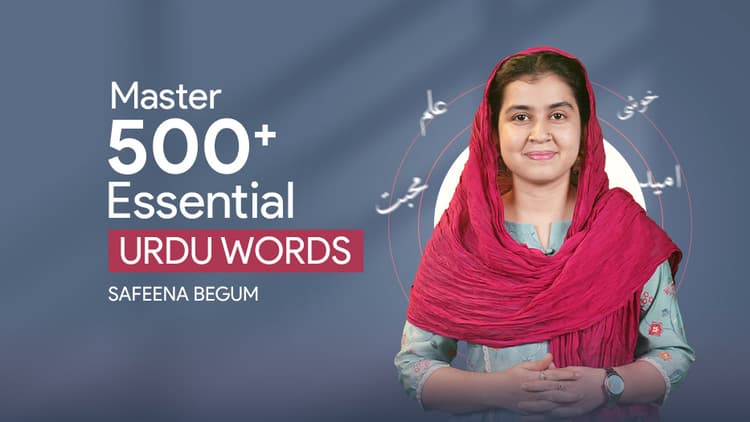
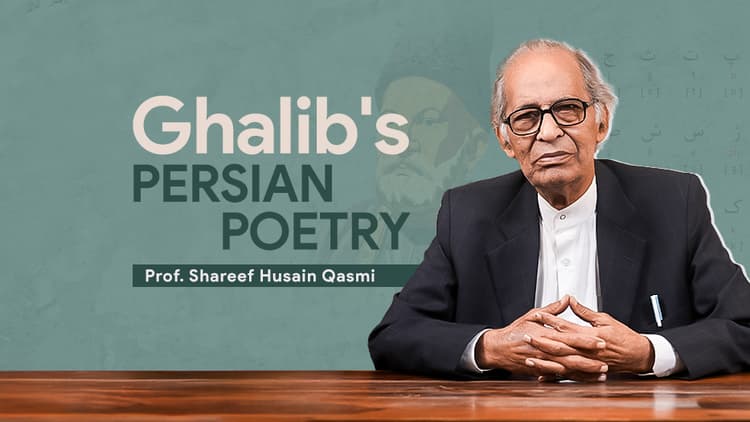
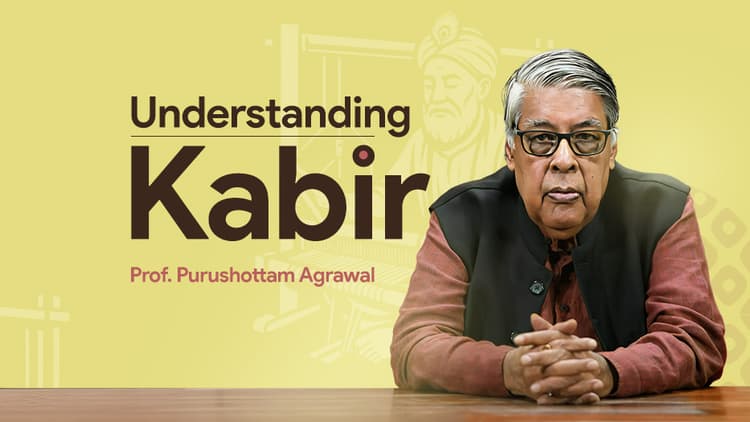
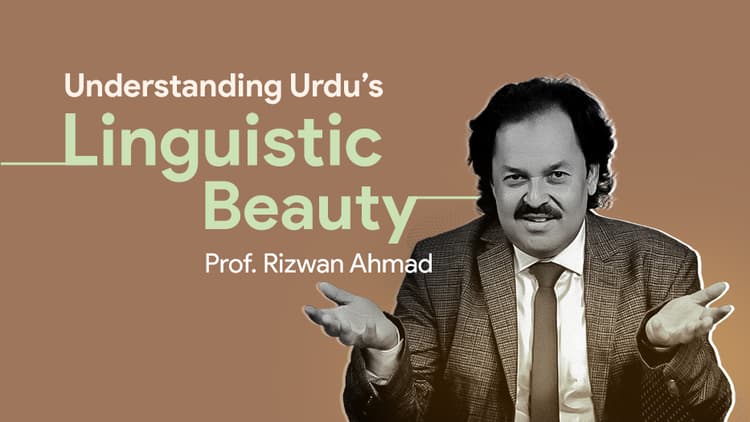
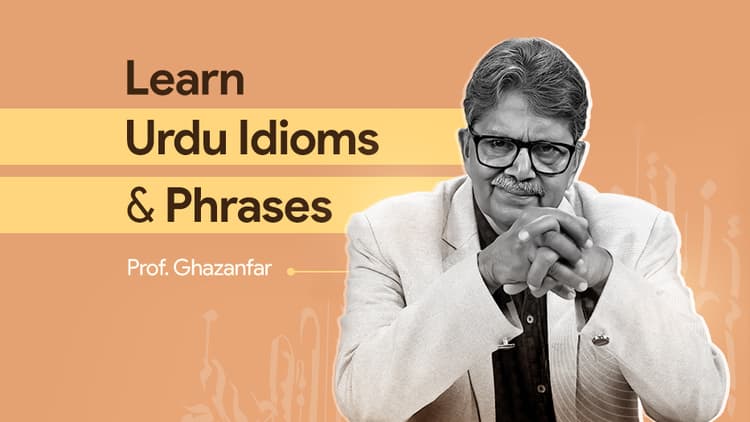
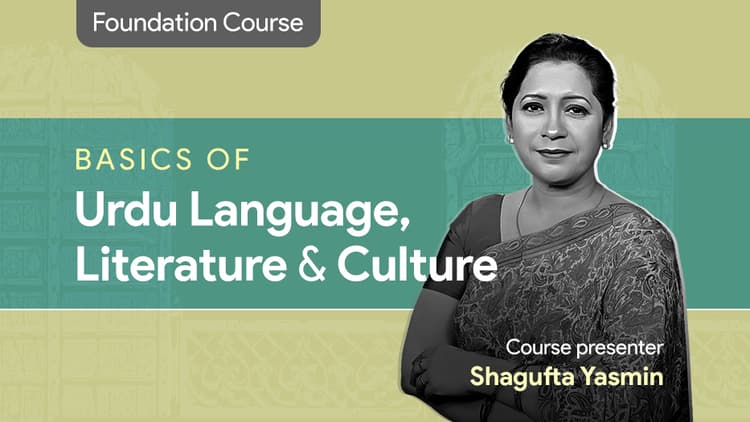
.jpg&w=750&q=75)
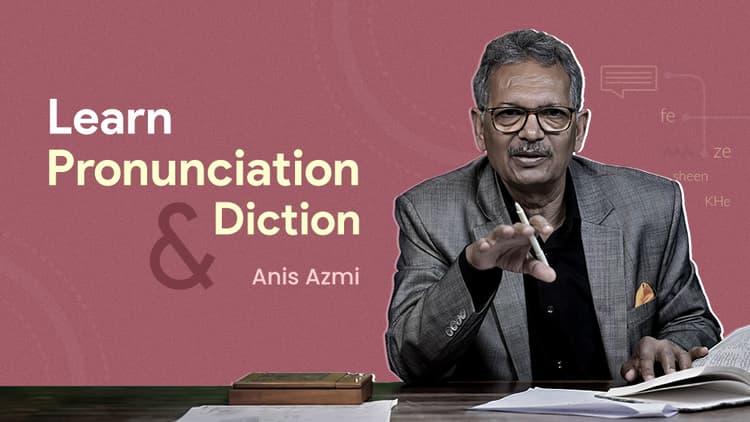

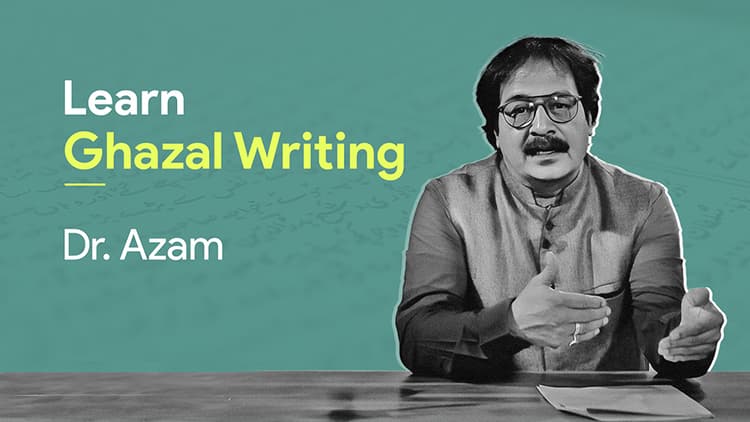
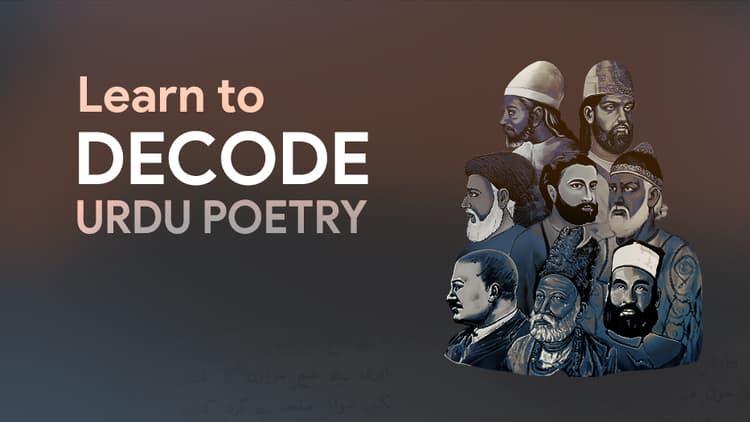
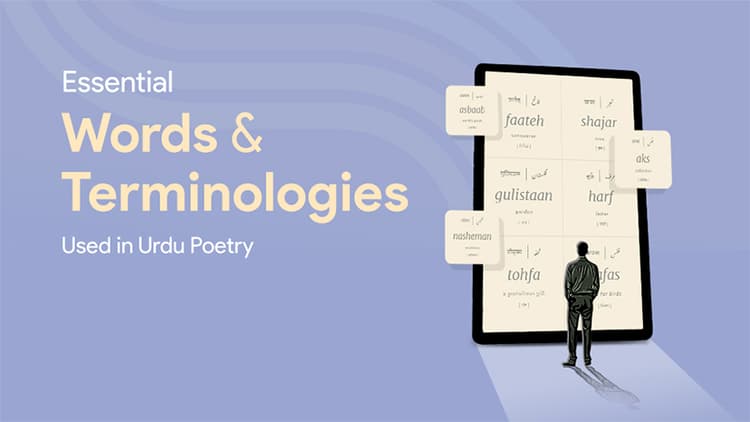
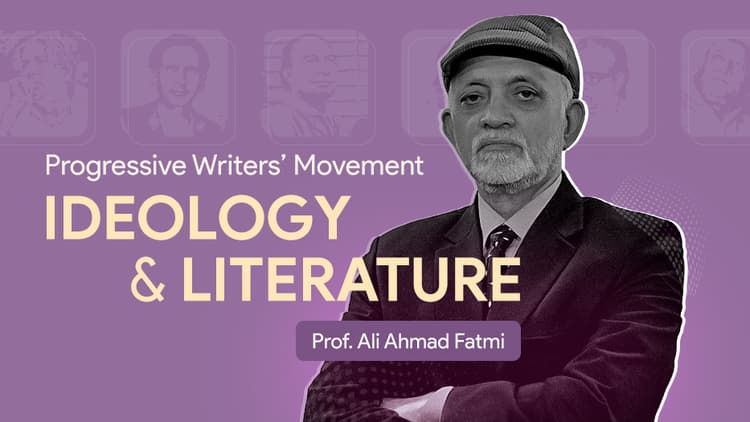











.jpg&w=828&q=75)



.jpg&w=828&q=75)











Comments